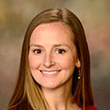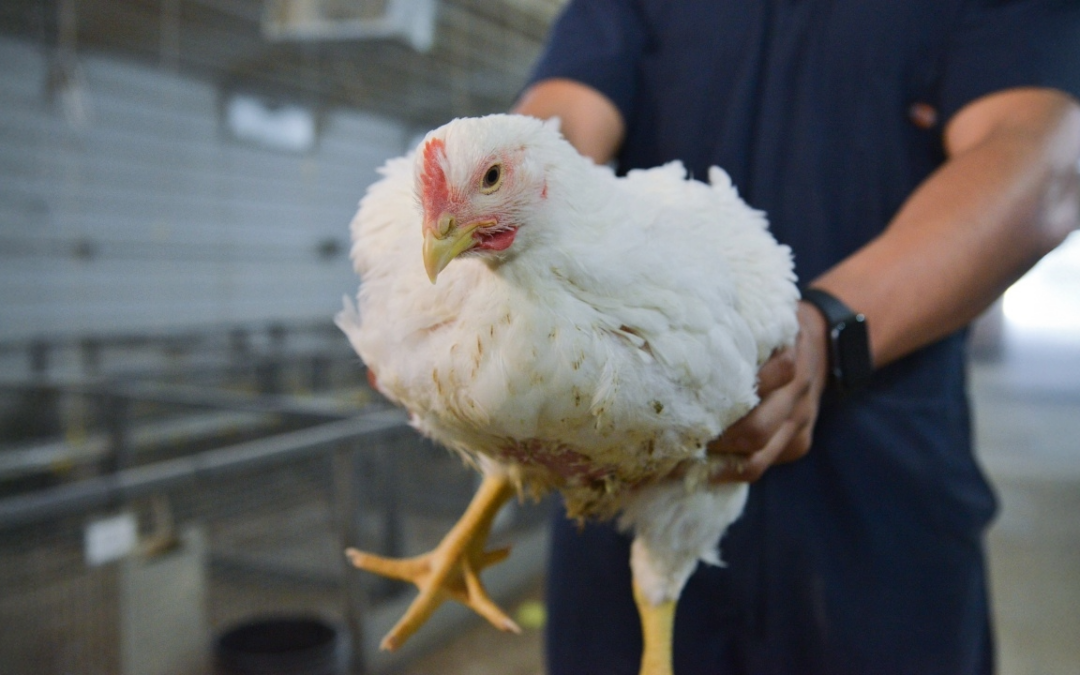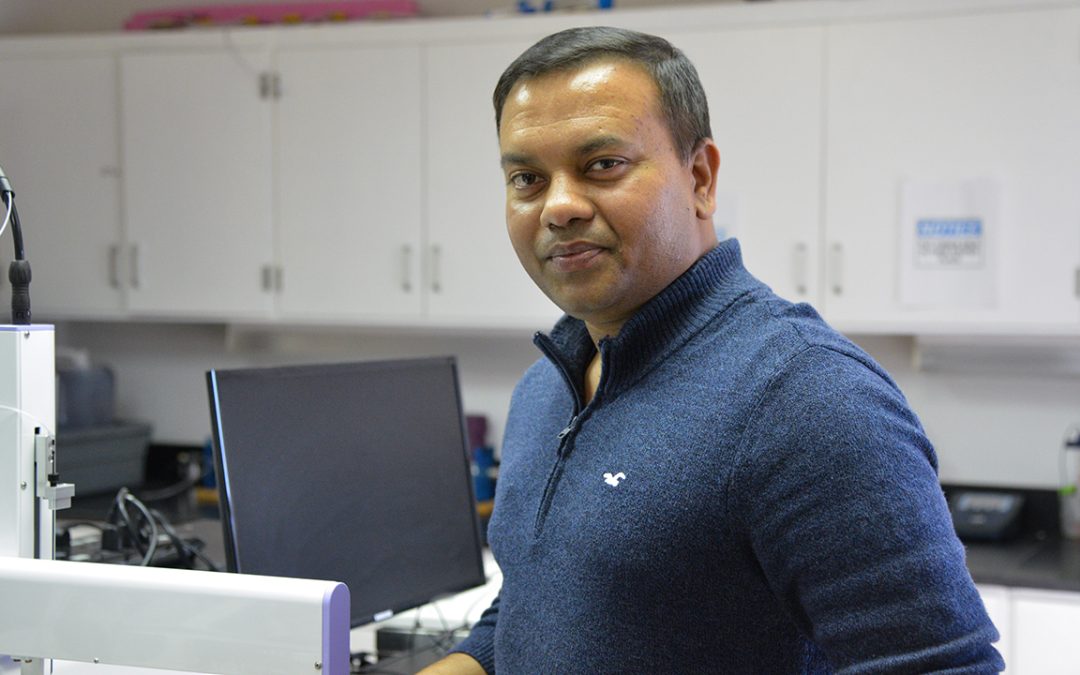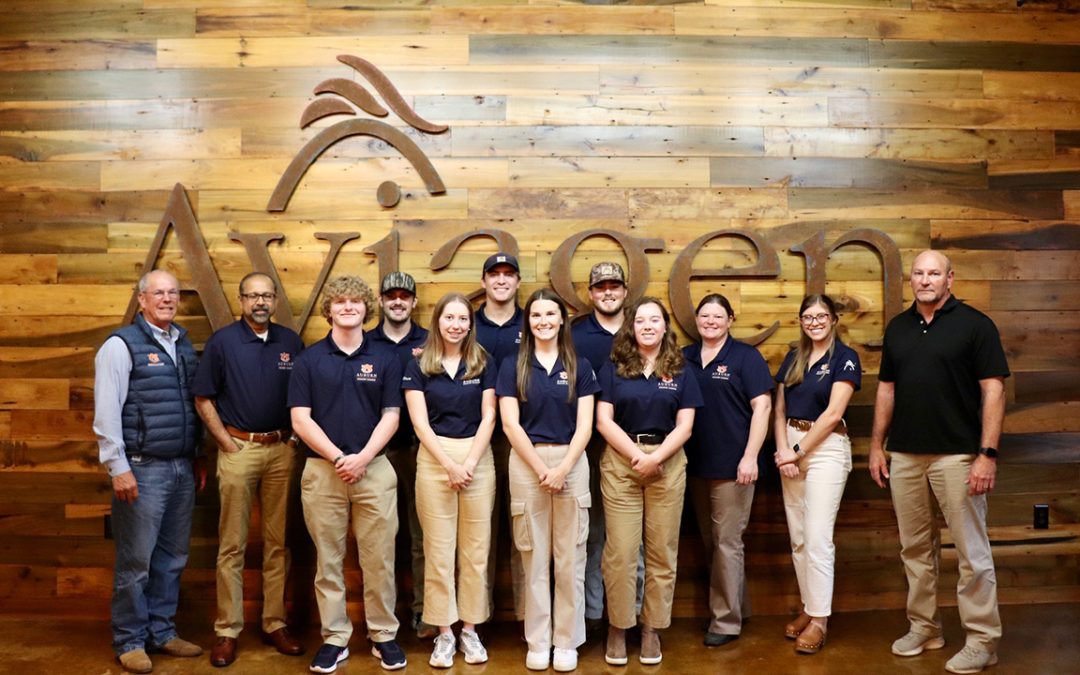by JAMIE CREAMER

Food science alum Melvin Carter is helping ensure the safety of the nation’s food supply through his work with USDA’s National Institute of Food and Agriculture.
There was but one stipulation on the full, four-year scholarship that Alabama A&M University offered South Macon County High School senior Melvin Carter back in the late 1980s: The scholarship was his, the university said, if he agreed to major in food science.
“Coming out of rural Alabama, it was college by any means, so I gave food science a chance,” Carter says. “One thing that came to my mind was that people will always have to eat.”
In all likelihood, had that full-ride carrot not been dangling in front of him, Carter wouldn’t have gone the route of food science, and had that been the case, he wouldn’t be playing a role today in ensuring that the nation’s food supply is nutritious, of good quality and free of disease-causing bacteria.
That’s the 2008 Auburn University food science Ph.D. alum’s ultimate goal as a national program leader for food science and technology in—get ready—the Institute of Food Safety and Nutrition’s Division of Food Safety at USDA’s National Institute of Food and Agriculture, or NIFA.
Specifically, Carter’s job in D.C. is all about identifying emerging food science and food safety issues of national importance and managing grants that NIFA awards for research aimed toward tackling and finding solutions to those complex problems.
“NIFA awards these competitive grants to fund projects that integrate a variety of food-related disciplines and emphasize food safety research, education and extension/outreach at universities throughout our nation,” he says.
Carter is relatively new to NIFA, starting his job there earlier this year after eight years as a food technologist with the U.S. Department of Defense’s Combat Feeding Directorate. Based at the U.S. Army Natick Soldier Research, Development and Engineering Center in Massachusetts, Carter—himself a retired Army Reserve soldier and Operation Iraqi Freedom veteran—led a team of scientists dedicated to raising the bar on the selection and quality of foods provided to the nation’s soldiers.
“Having been a soldier who relied on rations, it was quite an eye-opening experience to sit on the other side,” he says. “The expertise, thought and imagination it takes to research and develop a product that is warfighter recommended, tested and approved is testament to the commitment of my former co-workers in the directorate.
“They truly are a part of giving the decisive edge to our nation’s military in any area of contingency.”
Carter earned a B.S. from Alabama A&M in 1992 and went on to complete a master’s degree in food science and technology in ’98. That’s when he came to Auburn to pursue his doctorate under food science professor Jean Weese.
“Growing up in the state of Alabama, you set your sights on being a part of one of the Iron Bowl schools,” Carter says. “Once the opportunity presented itself, through an offer from Dr. Weese, it was a no brainer. My next stop would be on The Plains.”
His doctoral research involved investigating the use of irradiation to kill pathogens in ground beef. But in 2003, Carter, who had joined the Army Reserve in 1987 at age 17, was deployed as a combat engineer in support of Operation Iraqi Freedom.
When he returned to Auburn to resume his research two years later, things had changed. As it turned out, consumers had rejected the idea of eating irradiated ground beef, so his research focus shifted to the rapid detection of pathogens on chicken skin.
One of his all-time favorite memories occurred the day he was awarded his doctorate of philosophy in food science. It was, he says, “the expression on the face of Eliza Carter, my mother, as her youngest child crossed the stage with his Ph.D. That was priceless.”
For Carter, his Ph.D. pursuit at Auburn further prepared him not only for his career, but for taking on life’s challenges and not giving up.
“While at Auburn, I was able to work on several projects involving all aspects of food science technology, from microbiology to product development,” he says. “Even more was the discipline involved with pulling the long lab hours, the repetitiveness of the experimental procedure and the adaptation of needed changes to ensure validated and creditable work of value.
“In all, Auburn taught me that sometimes it takes more than eight hours to get a great job done.”




